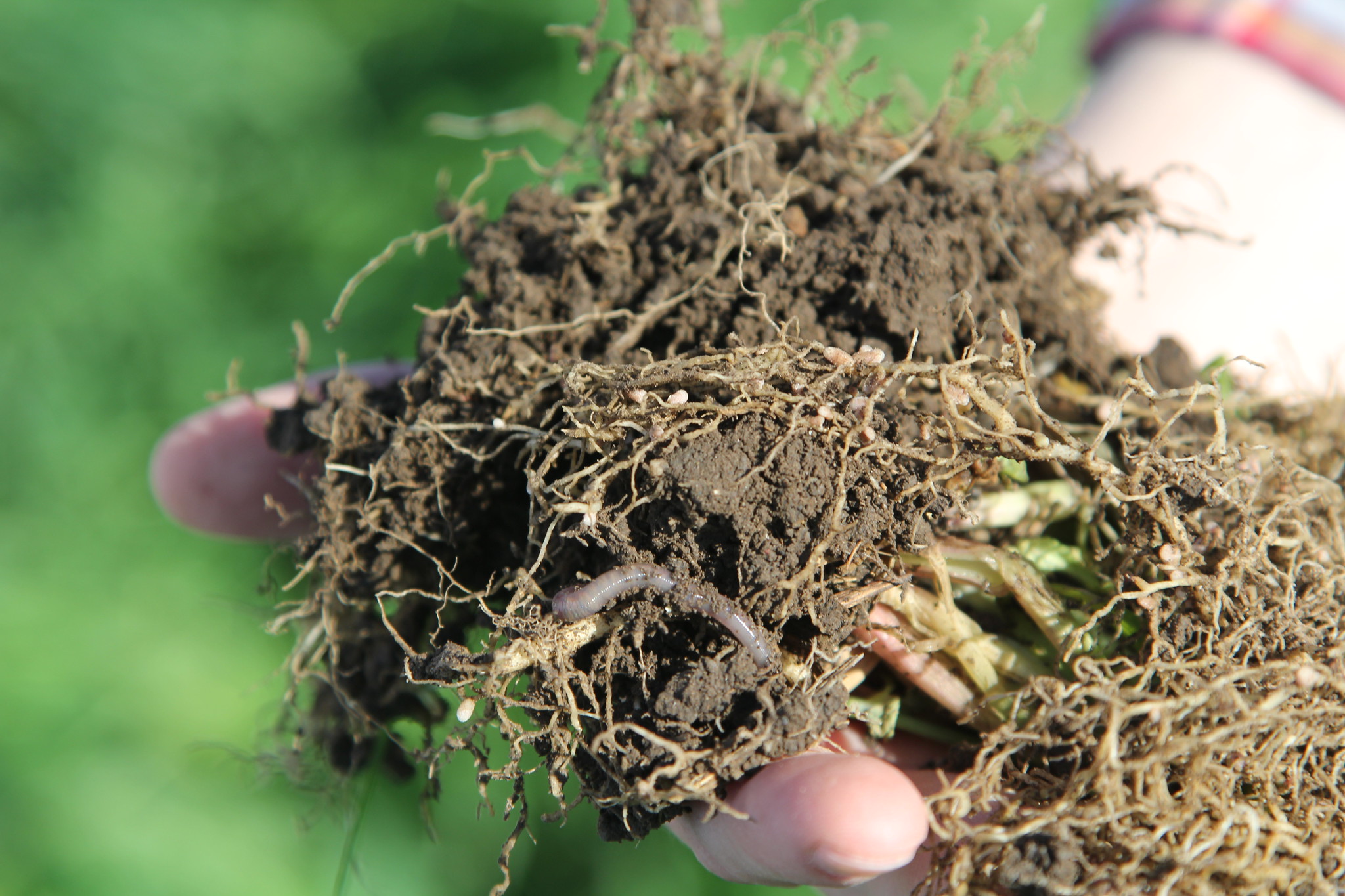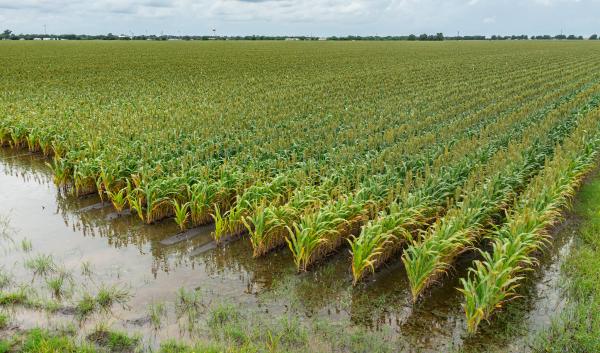Soil
 Soils provide a wide variety of ecosystem services, including regulating carbon through sequestration and providing a structure to support crop plants. Erosion of soil, the primary source for soil particles to leave agricultural fields, may increase in certain areas of the U.S. due to climate change. Some areas of the country will experience less rainfall, causing soils to dry out. Combined with higher winds, this may lead to higher rates of wind erosion. Other areas may experience more intensive rainstorms, which can increase erosion rates by washing out stream banks, for example. Other factors affecting soil erosion that may increase or decrease due to climate change include changing irrigation needs, snowmelt patterns, soil erodibility, conservation practices, and topography.
Soils provide a wide variety of ecosystem services, including regulating carbon through sequestration and providing a structure to support crop plants. Erosion of soil, the primary source for soil particles to leave agricultural fields, may increase in certain areas of the U.S. due to climate change. Some areas of the country will experience less rainfall, causing soils to dry out. Combined with higher winds, this may lead to higher rates of wind erosion. Other areas may experience more intensive rainstorms, which can increase erosion rates by washing out stream banks, for example. Other factors affecting soil erosion that may increase or decrease due to climate change include changing irrigation needs, snowmelt patterns, soil erodibility, conservation practices, and topography.
-
South Africa Committed to Climate Change Interventions in the Agricultural Sector
South Africa committed to climate change intervention in its agricultural sector by introducing the Agriculture, Food…
-
Climate Change, Global Food Security, and U.S. Food System Assessment
The result of a three-year effort led by the U.S. Department of Agriculture, this study brought together over thirty…
-
Adapting Philippine Agriculture to Climate Change
At least 1.25 million poor farmers and 5 million indirect beneficiaries will benefit from Adapting Philippine…
-
Carbon Mapping on the Go
Precision agriculture combines cutting-edge technology with traditional farming methods to improve the productivity,…
-
Breeding drought-tolerant pearl millet using conventional and genomics approaches: Achievements and prospects
Reviewed and discoursed the advancements in conventional breeding, progress in genomic resources development and…
-
Turn the Tap: A Focus on Soil Moisture Education
To help farmers improve their irrigation efficiency and gain greater knowledge on how to monitor soil moisture…
-
Daily runoff forecasting in agricultural watersheds: A promising tool for nutrient management
When rainfall occurs shortly after nutrient application, nutrients like nitrogen and phosphorus can be quickly…
-
Northwest Cover Crops for Climate Resilience
Cover crops can make farms more resilient to the impacts of climate change by enhancing soil health and water quality.
-
Northwest No-Till Farming for Climate Resilience
No-till farming keeps crop residues on farmland, protects soil, and limits the release of greenhouse gases.










